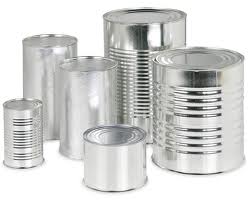BPA ~ Should We Be Concerned?
Category: Healthy Baby

In recognizing October as Breast Prevention Month, I am drawn to the news about the perils of Bisphenol A (BPA) found in polycarbonate plastic as well as in the lining of a majority of cans produced in this country (which would include sodas, alcohol, juice, tomato products, soups, gravies, even receipts; in other words a lot of food and drinks and receipts that America eats, drinks and uses)
Apparently, there is approximately 6 billion pounds of this chemical produced each year and it has been found in 95% of us here in the United States! BPA is known as an “endocrine disrupter” in lab animals and in some human studies. Recently, the US Food and Drug Administration (FDA) issued an update on BPA in which it agreed with the National Toxicology Program at the National Institutes of Health that there is “some concern” about the potential effects of BPA on the brain, behavior and prostate gland in fetuses, infants and young children.
A peer-reviewed study published in Environmental Health Perspectives with five families using both packaged and fresh foods at intervals just recently found that simply by using fresh foods, not canned or in plastic containers, greatly reduced the amount of BPA and DEHP exposure, a drop of 60% in BPA levels and 50% in DEHP levels n their urine tests.
CONCLUSIONS: BPA and DEHP exposures were substantially reduced when participants’ diets were restricted to food with limited packaging.
Sandra Steingraber, the author of a 2007 report on early puberty for the Breast Cancer Fund, an advocacy group, is concerned about an estrogen-like chemical called “BPA” which can cause early puberty in animals. Its role in humans isn’t as clear. The National Institutes of Health is funding research to answer questions about environmental causes of early puberty and hormonal changes, says Frank Biro, Director of Adolescent Medicine at Cincinnati Children’s Hospital Medical Center. According to USA Today, April 11, 2011, Biro and colleagues are testing more than 1,200 girls for their exposure to chemicals such as BPA, phthalates, pesticides and chemical flame retardants. The National Children’s Study, also funded by the federal government, will study 100,000 children, from before birth through age 21, looking at a variety of environmental exposures.
EWG has created the first easily, searchable database of nearly 16,000 processed food and drinks packaged in materials that may contain the hormone-disrupting chemical bisphenol A, or BPA. Go here for that information.
Jennifer Taggart, The Smart Mama, gives great guidelines on her website to these chemicals. She also lists the 10 canned foods to avoid to reduce BPA exposure. Check it out!
How about you? Will this information make you choose glass over cans?



Facebook Comments